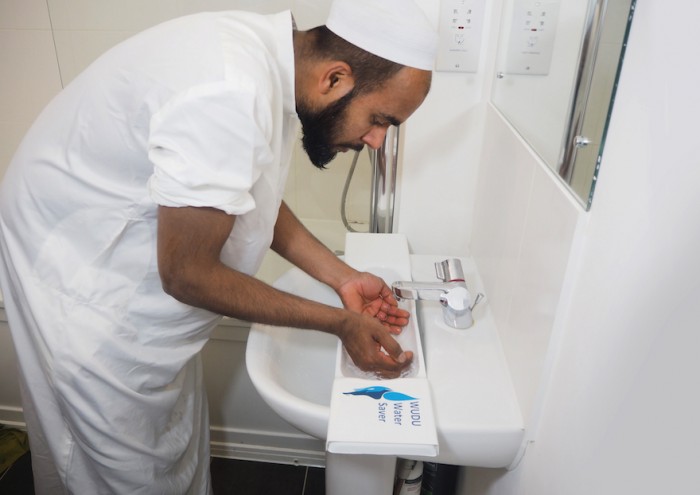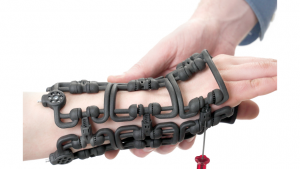
London-based designer Ahmed Salah has designed a product that allows Muslims to practice the obligatory cleansing ritual of Wudu using less water and at lower water temperatures. This saves on both water consumption and energy. Wudu is normally carried out in the bathroom, with a wash basin or bath and running water. Sometimes both taps are open and running during the whole cleansing process. The Wudu Water Saver has been sensitively designed to ensure that the volume of water is sufficient to wash the face, arms and feet during the ritual without needing to keep a tap running.
“‘Wudu’ is a cleansing ritual in Islam and an obligation for all Muslims,” explains Salah, who is originally from Yemen – a country currently listed amongst the most water deprived in the world. “Wudu is quite specific, and is required to be undertaken by all within the faith aged 13 years and above, five times a day. The ritual of Wudu requires an individual to wash their mouth, their nose and then their entire face three times each. After this Individuals are required to wash their arms, hair and ears three times, and finally their feet from the ankles down, also three times.”
Using the Wudu Water Saver, a user saves up to two litres of water per cleansing ritual, which amounts to 10 litres of water per day. Over the course of a year, a single person could save 3650 litres of water.
“There are many individuals that take the convenience of clean tap water for granted within the developed countries,” says Salah. “However, the WUDU water Saver can be used by individuals in countries that are suffering from water deprivation.”
The Wudu Water Saver sits on the rim of a sink or bath tub and a key design element for the product is in its ability to move (while full of water) from one to the other, so that the user can wash their feet. The water saver two part injection moulded and can be easily mass produced.
The design won Salah an RSA Student Design Award in the Sustainably Clean Challenge, sponsored by Unilever.
“Thinking like a designer is an approach that IDEO calls design thinking. This approach has been in action throughout all my projects, which includes bringing together what is desirable from a human point of view with what is technologically feasible and economically viable. I hope to find in-house experience at a design firm that takes a human centred, design-based approach to helping, serve and support people by uncovering latent needs, behaviours, and desires.”






